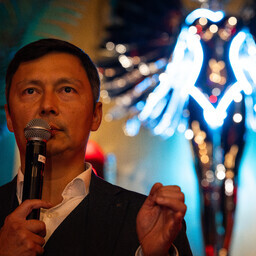The Center Party responded to Isamaa's questions on Tuesday. Isamaa also responded to the Center Party's questions.
The chairman of the Center Party, Mihhail Kõlvart, wished that the responses would be exchanged simultaneously. Isamaa initially did not decide with whom to start coalition negotiations. They asked four parties for their opinion on the future of Tallinn.
The Center Party also sent questions to Isamaa. Other parties said they would not respond in writing but wished to meet.
The Center Party responded to Isamaa's questions:
1. Tallinn's economy is a significant part of Estonia's economy. The city should support entrepreneurship and improve the urban space. For example, the Old Town could be made more diverse.
2. The transition to Estonian-language education will continue. Teachers need more training. Children need help, especially those who do not yet speak Estonian well.
3. Everyone has the right to Estonian-language service. Some issues, such as the working conditions of couriers, require state assistance.
4. The city's information channels should not be changed. District leaders are important for people to get information.
5. Tallinn Hospital should be built together with the state. There is also a need for a new sports hall and other large projects.
6. The city can help people cope with tax increases. For example, support families and pensioners.
7. The city government should not be too partisan. Experts should play a significant role in decision-making.
8. The future of the Maarjamäe Memorial should be discussed with the state and specialists.
9. Against raising the land tax. Suburban land should be tax-free.
10. Free public transport will remain. Tram lines should be developed, but some projects need to be reconsidered.
11. Housing policy can be solved primarily at the state level. The city should only help those in need.
12. The planning process should be accelerated, but not at the expense of quality.
The Center Party responded to Isamaa's questions on Tuesday. Isamaa also responded to the Center Party's questions.
The chairman of the Center Party, Mihhail Kõlvart, wished that the responses would be exchanged simultaneously. Isamaa initially did not decide with whom to start coalition negotiations. They asked four parties for their opinion on the future of Tallinn.
The Center Party also sent questions to Isamaa. Other parties said they would not respond in writing but wished to meet.
The Center Party responded to Isamaa's questions:
1. Tallinn's economy is a significant part of Estonia's economy. The city should support entrepreneurship and improve the urban space. For example, the Old Town could be made more diverse.
2. The transition to Estonian-language education will continue. Teachers need more training. Children need help, especially those who do not yet speak Estonian well.
3. Everyone has the right to Estonian-language service. Some issues, such as the working conditions of couriers, require state assistance.
4. The city's information channels should not be changed. District leaders are important for people to get information.
5. Tallinn Hospital should be built together with the state. There is also a need for a new sports hall and other large projects.
6. The city can help people cope with tax increases. For example, support families and pensioners.
7. The city government should not be too partisan. Experts should play a significant role in decision-making.
8. The future of the Maarjamäe Memorial should be discussed with the state and specialists.
9. Against raising the land tax. Suburban land should be tax-free.
10. Free public transport will remain. Tram lines should be developed, but some projects need to be reconsidered.
11. Housing policy can be solved primarily at the state level. The city should only help those in need.
12. The planning process should be accelerated, but not at the expense of quality.
13. The city should support the development of all of Estonia, not just Tallinn.
14. Bureaucracy should be reduced in the city government, and more specialists should be listened to.
15. To overcome the trust crisis, more people need to be listened to, and clear decisions need to be made.

